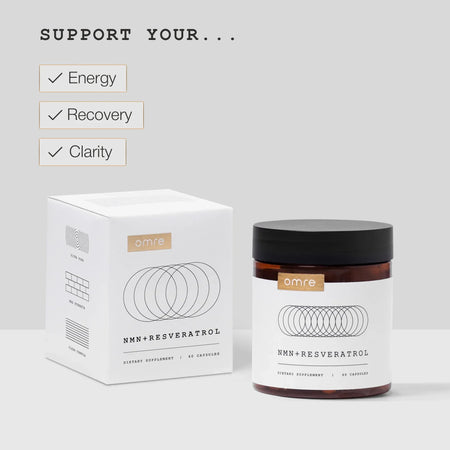In a world where health and wellness are increasingly celebrated, the quest for longevity has sparked curiosity among researchers, families, and individuals alike. Many wonder whether the ability to live a long life is simply a matter of genetics or if other factors play a significant role. This article delves into the question of whether longevity runs in families, examining the evidence and implications of familial longevity.
Does longevity run in families?
Yes, longevity does run in families. Research has shown that genetics can play a significant role in determining lifespan. Studies suggest that individuals with long-lived relatives, particularly parents and grandparents, are more likely to live longer themselves. However, it's essential to recognize that while genetics contributes to longevity, environmental factors, lifestyle choices, and socioeconomic status also significantly impact an individual's lifespan.
The concept of familial longevity is supported by various studies that demonstrate a hereditary pattern in lifespan. For instance, a study published in the journal "Nature" found that centenarians have specific genetic variants that may contribute to their long lives. These genetic factors can influence everything from metabolism and immune response to the body’s ability to repair itself, thus supporting a longer life.
The Role of Genetics in Longevity
Genetics is a crucial factor in determining longevity, but it’s not the only one. Researchers have identified specific genes associated with longevity, such as the FOXO3 gene, which has been linked to increased lifespan in various populations. Individuals with certain variations of this gene are more likely to live to 100 or beyond.
Moreover, twin studies provide further evidence of the genetic component of longevity. Identical twins, who share 100% of their genes, often have similar lifespans, suggesting that genetic factors significantly influence how long they live. However, it is essential to note that while genetics sets the foundation for potential longevity, it does not guarantee it.
Environmental Factors That Influence Longevity
While genetics plays a vital role, environmental factors are equally, if not more, influential in determining lifespan. These factors include lifestyle choices such as diet, physical activity, and habits like smoking or drinking. For example, individuals who maintain a healthy diet rich in fruits, vegetables, and whole grains, and engage in regular physical exercise, often enjoy longer, healthier lives.
Moreover, social determinants of health, such as access to healthcare, education, and socioeconomic status, have a substantial impact on longevity. Communities with strong social ties and support systems tend to foster healthier lifestyles and better health outcomes, contributing to increased lifespan among their members.
The Epigenetic Perspective
Epigenetics is another fascinating area of research that sheds light on how familial longevity may be shaped. This field studies how environmental factors can influence gene expression without altering the underlying DNA sequence. For instance, stress, nutrition, and lifestyle can lead to epigenetic changes that may either promote health and longevity or contribute to disease.
Families often share not only genes but also environments and lifestyle habits, which can lead to similar epigenetic modifications. This shared environment can help explain why longevity often appears to run in families, as lifestyle choices may amplify or mitigate genetic predispositions.
Case Studies of Long-Lived Families
Several case studies highlight the phenomenon of familial longevity. For example, the Okinawans in Japan are known for their high number of centenarians, and studies suggest that their lifestyle, including a diet low in calories but high in nutrients, along with a strong sense of community, contributes significantly to their long lives. Families in these regions often share not just genetic traits but also cultural practices that promote longevity.
Another example is the “Blue Zones,” regions known for their high concentration of centenarians, including Sardinia, Italy, and Ikaria, Greece. Families within these areas exhibit similar health behaviors and lifestyles that support longevity, further reinforcing the idea that both genetics and environment play crucial roles.
The Impact of Lifestyle Choices on Longevity
While genetics may provide a blueprint for longevity, lifestyle choices are essential in shaping whether one reaches their potential lifespan. Key lifestyle choices that can influence longevity include:
- Diet: A balanced diet rich in whole foods, nutrients, and antioxidants can help prevent chronic diseases associated with aging.
- Physical Activity: Regular exercise is crucial for maintaining a healthy weight, reducing the risk of heart disease, and improving mental health.
- Stress Management: Chronic stress can lead to various health issues, so practices like mindfulness, meditation, and social engagement can help mitigate its effects.
- Social Connections: Strong relationships and a sense of community have been linked to longer lifespans, providing emotional support and decreasing feelings of isolation.
Conclusion: A Holistic Approach to Longevity
In conclusion, while longevity does run in families, it is not solely dictated by genetics. A combination of genetic predisposition, environmental influences, lifestyle choices, and social factors contributes to the overall health and lifespan of individuals. To maximize the potential for a long and healthy life, it is essential to adopt a holistic approach that encompasses healthy living, strong social ties, and an awareness of both genetic and environmental factors. By understanding and embracing these elements, individuals can take proactive steps toward achieving longevity, regardless of their familial history.
Stay Sharp, Stay Energized, Stay Ahead
Aging doesn’t have to slow you down. NMN + Resveratrol is your key to sustained energy, sharper focus, and long-term vitality. Whether you're a high performer pushing boundaries, a biohacker optimizing every aspect of life, or a parent looking to keep up with the demands of daily life, this powerful combination fuels your body at the cellular level.
Backed by science and trusted by those who refuse to settle for average aging, NMN + Resveratrol helps you stay ahead—today, tomorrow, and for years to come.
Experience the benefits for yourself. Start your journey to better aging now!
Try NMN + Resveratrol Today!
NMN + RESVERATROL
Cellular NAD+ booster with ultra‑pure NMN and Resveratrol, at research‑backed doses.*
Read more:


